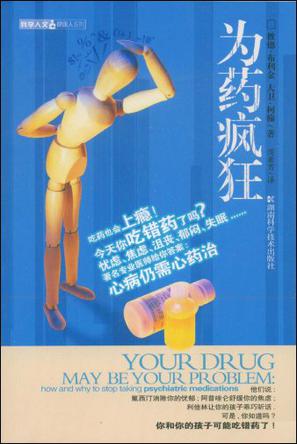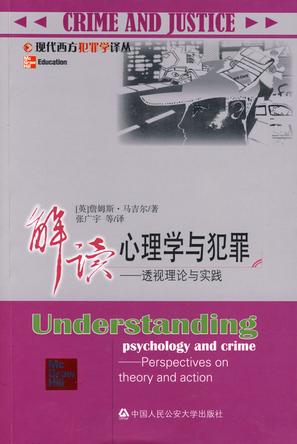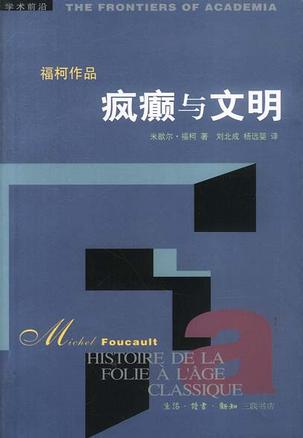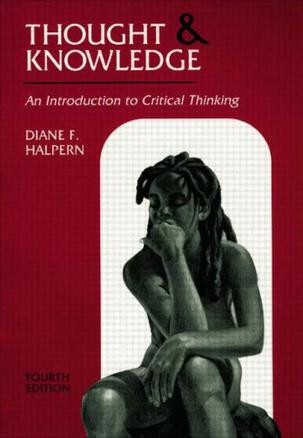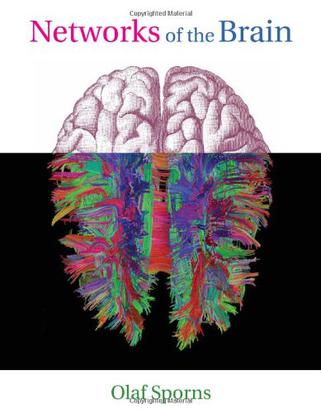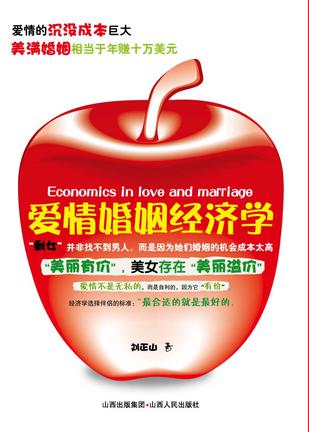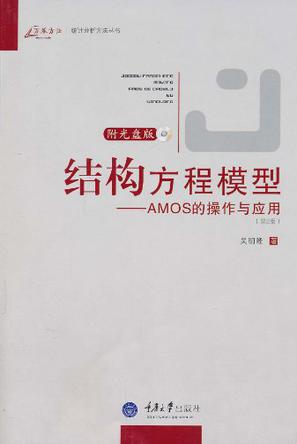欢迎来到相识电子书!
标签:心理学
-
The Body Has a Mind of Its Own
Your body has a mind of its own. You know it’s true. You can sense it, even though it may be hard to articulate. You know that your body is more than a vehicle for your brain to cruise around in, but how deeply are mind and body truly interwoven? Answers can be found in the emerging science of body maps. Just as road maps represent interconnections across the landscape, your many body maps represent all aspects of your bodily self. Your self doesn’t begin and end with your physical body but extends into the space around you. When you drive a car, your personal body space grows to envelop it. When you play a video game, your body maps automatically track and emulate the actions of your character onscreen. If your body maps fall out of sync, you may have an out-of-body experience or see auras around other people. The Body Has a Mind of Its Own explains how you can tap into the power of body maps to do almost anything better: play tennis, strum a guitar, ride a horse, dance a waltz, empathize with a friend, raise children, cope with stress. Filled with illustrations, wonderful anecdotes, and even parlor tricks that you can use to reconfigure your body sense, The Body Has a Mind of Its Own will change the way you think about what it takes to have a conscious mind inside a feeling body. Praise for The Body Has a Mind of Its Own NAMED ONE OF THE BEST BOOKS OF THE YEAR BY THE WASHINGTON POST BOOK WORLD “You’ll never think about your body–or your mind–in the same way again.” –Daniel Goleman, author of Social Intelligence “A fascinating exploration of senses we didn’t even know we had.” –Jon Kabat-Zinn, author of Coming to Our Senses “A delightfully original, understandable, and mind-stretching work.” –William Safire, columnist, The New York Times Magazine “A marvelous book.” –V. S. Ramachandran, M.D., director, Center for Brain and Cognition, University of California, San Diego “[An] accessible, practical overview of an important scientific story.” –Antonio Damasio, author of Descartes’ Error -
为药疯狂
《为药疯狂》用通俗的语言,告诉我们各种常见的抗忧郁、镇静等等药物可能给我们带来什么问题,同时也告诉读者,如何寻找助力来一步一步的戒除这些药瘾,以及在戒药瘾时可能面临的各种身心反应。《为药疯狂》英文版出版后,受到世界范围内许多精神类药物的使用者和专业临床医生的高度肯定与赞许。 近年来,精神治疗药物的使用量暴增,尤其是通过处方开出的给儿童的兴奋剂和成人的抗抑郁药物、镇静药物。大众越来越依赖处方药物来解决心理和社会问题。媒体直接将镇静类药品介绍给消费者,并向外行人赞扬精神治疗药物治疗儿童和成人各种心理、情绪问题的效果。 精神科药物的使用已不只是西方社会的问题,国内也使用得越来越多。不过,从西方到国内都一样,医生给病人药物的信息相当有限。而且许多药物反而是给病人带来新的问题。 医生在开出抗忧郁药物或镇定剂处方之前,通常只花几分钟时间评估病情。可是一旦病人决定接受药物治疗,很可能一辈子都摆脱不了这些药物,也无法避免长期用药带来的有害副作用。想找到一位医生指导病人服用精神治疗药物很容易,但要找到愿意帮病人停止用药的医生却很困难。 -
AB型自分の説明書
つかみどころがないAB型人間の特徴をがっちりキャッチ。 好評血液型シリーズの第三弾。 □つかみどころがない。 □情や感覚で大事なことを決めたりしない。 □「ど根性」という言葉が大嫌い。 □爆笑しているときはたいていウソ。 ……などなど、合理主義で皮肉屋で、クールな印象を持たれて敬遠されがちのAB型人間だが、著者にかかれば意外な姿が驚くほど見えてくる。100万部突破の大ベストセラーとなった『B型自分の説明書』、大好評の『A型自分の説明書』に続く血液型シリーズの第三弾。 -
心智的定量研究
《心智的定量研究》分八章,从心智的特性出发,探讨了心智的定量研究的必要性和可行性,以及困难性和局限性,并详细总结了相关的心理实验、心理定律、心理量表以及心理模型,介绍了最新的研究成果。 众所周知,量化是心理学研究科学化的重要标志。心理学领域的定量研究是由行为世界通向概念世界的桥梁。通过把客观世界和主观世界在数量上的变化用数学的通用语言来表达,心智的定量研究将行为、心理过程转化为特定的概念。因为心智本身的复杂性,人们对心智的定量研究有很多不同的看法,引起了很多争论。 -
贪食症厌食症
《贪食症·厌食症(图文版)》图文并茂地、全面地介绍了两种摄食障碍——贪食症和厌食症的患病原因及其在身体、心理方面的症状表现,就患者如何到医疗机构进行治疗给予了全方位的指导。另外,作者还为患者总结了患病期间与家人、朋友、同事的相处之道。贪食症和厌食症是目前正悄然流行于都市的少女病。对人际关系的烦恼、对未来的不安、对自己体型不满,这些因素都可能给患者造成痛苦,最后引起摄食障碍。 读者可以在心理、饮食、减肥等多个方面获得有益的启示,真正通过自己的力量抓住治疗的契机,尽快治愈疾病。 -
行为矫正技术
《行为矫正技术》系统介绍了行为矫正概貌、研究方法以及十二种具体的行为矫正技术。全书以行为矫正技术的应用类型为纲,将十二种行为矫正技术分为针对积极行为、消极行为以及综合技术三大部分,不仅详细阐述了各种技术的理论基础及应用方法,还对每种技术的适用情况和注意事项做了细致说明。《行为矫正技术》论述精炼,深入浅出,实例丰富,应用性强,对于心理学专业学生学习行为矫正技术而言,乃是必备书目。 目录 -
解读心理学与犯罪-透视理论与实践
一个普遍的假设认为心理学存在许多缺陷而不适合用于研究犯罪。心理学的从业者描述他们自己是经受过严格训练的,像物理学家或生物学化学家一样采用这类“硬”科学同样的调查方法。当其他社会研究学科已经着手新的研究范式时,他们依然谈论行为并且进行控制下的实验。心理学被认为或多或少只在人们自身内部寻找他们行为的原因,并被认为如果不是有意拒绝诸如社会条件或政治力量等外部的环境因素,就是忽视了它们。这已经被认为是心理学本身固有的保守姿态(见Lillyetal.,2002)。心理学与生物学和医学有着很近的联系,并将犯罪看成是一种病态。心理学家使用老鼠、鸽子、大学生和其他外国人进行实验,他们在一些相当有限的抽样样本和奇特调查的基础上得出大量结论。在一些实验中,他们让人们待在黑屋子里并戴上一种能让所看到的世界上下颠倒的透镜,或对其进行电击。他们应用智力测验、无意义音节、单向玻璃和厌恶疗法。总而言之,这是一群古怪的令人讨厌的家伙,最好离他们远点。 -
Thought and Knowledge
This best-selling textbook, written by award-winning educator and past president of the APA, Diane Halpern, applies theory and research from the learning sciences to teach students the thinking skills they need to succeed in today's world. This new edition retains features from earlier editions that have helped its readers become better thinkers. A rigorous academic grounding based in cognitive psychology is presented in a clear writing style with a humorous tone and supported by numerous practical examples and anecdotes. Thought & Knowledge, Fourth Edition has been revised to help students meet the challenges of a global neighborhood and make meaningful conclusions form the overwhelming quantity of information now available at the click of a mouse. The skills learned with this text will help students learn more efficiently, research more productively, and present logical, informed arguments. New features include: Template for Making Arguments. This is a crucial preparation tool for students in any subject area. For those planning on continuing to Graduate School, this feature is an essential reference. The Graduate Record Examination (GRE) now requires that all test takers write an argument on a contemporary topic. Concept Maps provide students with strategies to clarify complex information and retain long-term knowledge. Contemporary Examples, throughout the text, relate current events to the book discussions. Explanations on How to Evaluate Information found on Web sites. Revised Student Workbook. Thinking Critically About Critical Thinking, Fourth Edition is filled with new exercises to reinforce learning and practice newly acquired skills. This workbook can be purchased in a student package with the text or as a separate item. Thought & Knowledge, Fourth Edition is appropriate for use as a textbook in critical thinking courses offered in departments of psychology, philosophy, English, humanities, or as a supplement in any course where critical thinking is emphasized. -
Montessori
One hundred years ago, Maria Montessori, the first female physician in Italy, devised a very different method of educating children, based on her observations of how they naturally learn. In Montessori, Angeline Stoll Lillard shows that science has finally caught up with Maria Montessori. Lillard presents the research behind eight insights that are foundations of Montessori education, describing how each of these insights is applied in the Montessori classroom. In reading this book, parents and teachers alike will develop a clear understanding of what happens in a Montessori classroom and, more important, why it happens and why it works. Lillard, however, does much more than explain the scientific basis for Montessori's system: Amid the clamor for evidence-based education, she presents the studies that show how children learn best, makes clear why many traditional practices come up short, and describes an ingenious alternative that works. Now with a foreword by Renilde Montessori, the youngest grandchild of Maria Montessori, Montessori offers a wealth of insights for anyone interested in education. -
The Stuff of Thought
This New York Times bestseller is an exciting and fearless investigation of language Bestselling author Steven Pinker possesses that rare combination of scientific aptitude and verbal eloquence that enables him to provide lucid explanations of deep and powerful ideas. His previous books—including the Pulitzer Prize finalist The Blank Slate —have catapulted him into the limelight as one of today’s most important popular science writers. In The Stuff of Thought , Pinker presents a fascinating look at how our words explain our nature. Considering scientific questions with examples from everyday life, The Stuff of Thought is a brilliantly crafted and highly readable work that will appeal to fans of everything from The Selfish Gene and Blink to Eats, Shoots & Leaves . -
Handbook of Personality, Third Edition: Theory and Research
Review "With this third edition of the Handbook of Personality, the vibrant state of theory, research, and application in personality psychology is abundantly evident. The editorial team has brought together an all-star cast of chapter authors who offer state-of-the-science discussions of classic and contemporary topics in personality psychology, accessible to scholars and students alike. Truly, this is a landmark work." - Mark Snyder, McKnight Presidential Chair in Psychology, University of Minnesota, USA "Three renowned editors bring together personality psychology's preeminent scholars to create what will surely become an indispensable reference work for investigators, educators, and graduate students. This extraordinary volume captures the breadth, depth, vigor, and vision of the modern study of personality by offering leading-edge perspectives on fundamental questions. Topics such as religious experience and subjective well-being, which have not been included in previous editions, reveal the impressive scope of the field-and of this volume. The latest in theory and research, woven into each chapter, is sure to inspire both seasoned scholars and the next generation of personality researchers." - Howard Tennen, Department of Community Medicine and Health Care, University of Connecticut, USA -
每天懂点心理学定律
《每天懂点心理学定律》是一本通俗易懂又不失准确深刻的心理学读物,语言简洁洗练,道理深刻实用。《每天懂点心理学定律》就自我认知、情绪控制、人际交往、职场生存、教育心理、成功法则、生活现象等与人们日常生活和工作息息相关的内容,提供了相关心理知识的普及介绍和具体应用,让我们能重新认识自我并改变自我。希望阅读《每天懂点心理学定律》后,不仅能丰富你的心理学常识,让你对生活有更深刻的理解,还能在智慧的指引下,绕过人生中的暗礁,驾驭自己的航船成功地驶向彼岸。 -
Being Wrong
To err is human. Yet most of us go through life assuming (and sometimes insisting) that we are right about nearly everything, from the origins of the universe to how to load the dishwasher. If being wrong is so natural, why are we all so bad at imagining that our beliefs could be mistaken, and why do we react to our errors with surprise, denial, defensiveness, and shame? In Being Wrong , journalist Kathryn Schulz explores why we find it so gratifying to be right and so maddening to be mistaken, and how this attitude toward error corrodes relationships—whether between family members, colleagues, neighbors, or nations. Along the way, she takes us on a fascinating tour of human fallibility, from wrongful convictions to no-fault divorce; medical mistakes to misadventures at sea; failed prophecies to false memories; "I told you so!" to "Mistakes were made." Drawing on thinkers as varied as Augustine, Darwin, Freud, Gertrude Stein, Alan Greenspan, and Groucho Marx, she proposes a new way of looking at wrongness. In this view, error is both a given and a gift—one that can transform our worldviews, our relationships, and, most profoundly, ourselves. In the end, Being Wrong is not just an account of human error but a tribute to human creativity—the way we generate and revise our beliefs about ourselves and the world. At a moment when economic, political, and religious dogmatism increasingly divide us, Schulz explores with uncommon humor and eloquence the seduction of certainty and the crises occasioned by error. A brilliant debut from a new voice in nonfiction, this book calls on us to ask one of life's most challenging questions: what if I'm wrong? -
Networks of the Brain
Over the last decade, the study of complex networks has expanded across diverse scientific fields. Increasingly, science is concerned with the structure, behavior, and evolution of complex systems ranging from cells to ecosystems. Modern network approaches are beginning to reveal fundamental principles of brain architecture and function, and in Networks of the Brain, Olaf Sporns describes how the integrative nature of brain function can be illuminated from a complex network perspective. Highlighting the many emerging points of contact between neuroscience and network science, the book serves to introduce network theory to neuroscientists and neuroscience to those working on theoretical network models. Brain networks span the microscale of individual cells and synapses and the macroscale of cognitive systems and embodied cognition. Sporns emphasizes how networks connect levels of organization in the brain and how they link structure to function. In order to keep the book accessible and focused on the relevance to neuroscience of network approaches, he offers an informal and nonmathematical treatment of the subject. After describing the basic concepts of network theory and the fundamentals of brain connectivity, Sporns discusses how network approaches can reveal principles of brain architecture. He describes new links between network anatomy and function and investigates how networks shape complex brain dynamics and enable adaptive neural computation. The book documents the rapid pace of discovery and innovation while tracing the historical roots of the field. The study of brain connectivity has already opened new avenues of study in neuroscience. Networks of the Brain offers a synthesis of the sciences of complex networks and the brain that will be an essential foundation for future research. -
爱情婚姻经济学
现代社会的男女,无不追求浪漫的爱情,稳定的婚姻。与此同时,婚姻似乎越来越脆弱。关于爱情、婚姻中的种种问题,用经济学的眼光看,爱情与婚姻的话题就非常有讨论价值。 运用经济学的思维,爱情是一种非耐用品,婚姻不过是比较特别的契约。一旦我们明白了这一点而对症下药,爱情就可以转变为“耐用消费品”,可以获得最大的福祉。 本书的专文,围绕爱情、婚姻中的焦点、热点与难点问题,以经济学为“解牛刀”,揭示爱情与婚姻背后的深刻机理,引导婚恋走向理性。换一个角度,特别是从经济学的视角看爱情与婚姻,更有利于解释和解决爱情与婚姻中的种种难题,帮助读者以理性成就佳缘。 作者从经济学的角度,从理性分析和利弊平衡的角度来看待爱情和婚姻当中遇到的现实问题。这是非常有意义和价值的。两性相处,尤其是在婚姻当中,遇到的都是现实问题,而当前很多年轻夫妻,对婚姻当中的问题都没有真正的心理准备,这也导致了目前离婚率越来越高的现象。本书对婚姻和两性关系的助益,是很有现实性的,是即将步入婚姻殿堂或者已经在婚姻当中面临困难的男女必读的爱情手册。 -
结构方程模型
《结构方程模型:AMOS的操作与应用(第2版)》前半部介绍结构方程模型(SEM)的概念与AmosGraphics窗口界面的基本操作;后半部以各种实例介绍AmosGraphics在各种SEM模型中的应用。全书采用AMOS图像界面,完全没有复杂的SEM理论推导和语法,最大的特点就是对利用AMOS进行结构方程模型各种分析的每一个步骤都有详细的讲解和图示。这是一本“使用者界面”取向的书籍,即使是不懂传统SEM语法使用者,也能在最短时间内学会用AMOS绘制各种SEM模型图,并将模型估计、模型识别判断、模型修正与模型验证,实际应用于自己的研究领域中。《结构方程模型:AMOS的操作与应用(第2版)》的读者对象是结构方程模型分析方法的学习者和使用者,适合社会科学各学科高年级本科生、硕博士研究生自学,也适合教师教学辅助参考。 -
做父亲,不许失败的创业
《徐曙光系列作品之1:做父亲,不许失败的创业》是一本妈妈必须推荐给爸爸读的书。育儿是门严谨的科学好父亲用好谋略换取儿女的成长养育孩子同样要发挥性别优势父亲就该引领孩子去探索更大的世界别把培养孩子视作和赌博一样的非赢即输事件孩子的成长只有一个机会因为输不起所以别去赌不要让家庭的富足成为孕育孩子骄奢淫逸的温床平静朴实的居家环境比炫丽的环境更有利于孩子体验生活的丰富多彩“棒下出孝子”用辩证的眼光看待传统教育理念不一味推崇也不全盘否定如果把父母当做一种职业那么这便是一份永远无法回头的工作——既不能辞职,也不能重来如果说这世上还有权利与义务不对等的事情那就是教育孩子为父的只有义务为父的责任就是"没有权利的义务"攀比是和别人比而我主张的是和自己比要做到自己的最好尊严是社会给的不是家庭给的更不是自封的,我要孩子相信幸福是自己给自己创造的可以来自工作亲情友情而不是仅仅依靠某段婚姻。
热门标签
下载排行榜
- 1 梦的解析:最佳译本
- 2 李鸿章全传
- 3 淡定的智慧
- 4 心理操控术
- 5 哈佛口才课
- 6 俗世奇人
- 7 日瓦戈医生
- 8 笑死你的逻辑学
- 9 历史老师没教过的历史
- 10 1分钟和陌生人成为朋友


